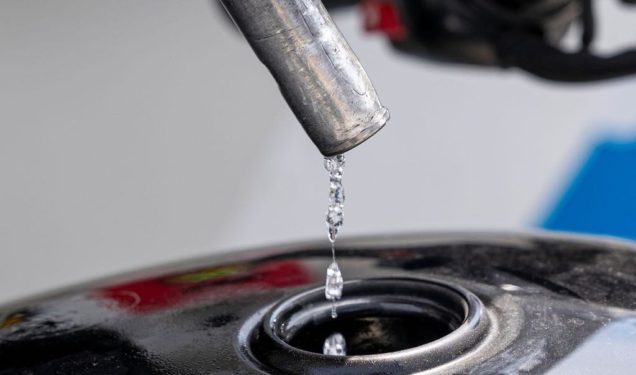Nigeria’s expenditure on motor spirit, commonly known as fuel, soared to N2.6 trillion in the first quarter of 2024, marking a significant 46% increase from the N1.8 trillion spent in the fourth quarter of 2023. This data, from the latest foreign trade report by the National Bureau of Statistics (NBS), underscores the escalating costs associated with fuel imports, driven primarily by the depreciation of the Naira.
Key Insights:
Expenditure Trends:
– First Quarter of 2024: Nigeria spent N2.6 trillion on motor spirit imports.
– Fourth Quarter of 2023: The expenditure was N1.8 trillion.
– Annual 2023 Expenditure: Total spending on motor spirit imports was N7.5 trillion.
Impact of Exchange Rate Depreciation:
– The depreciation of the Naira, which hit an all-time low at the end of Q1 2024, is a significant factor in the increased cost of imports.
– In dollar terms, Q1 2024 fuel imports amounted to approximately $2 billion, based on an exchange rate of N1,309/$1. This is a stark contrast to Q1 2023, where $4.4 billion was spent at an exchange rate of N461/$1.
Total Import Costs:
– Q1 2024: Nigeria incurred a total of N4.39 trillion on importing fuels and lubricants, including N2.6 trillion for motor spirit and N1.756 trillion for other fuel types.
– Q4 2023: The total cost was N3.82 trillion.
-Q1 2023: The cost was N2 trillion, highlighting a sharp increase over the past year.
Historical Comparison:
– The cost of fuel and lubricant imports has more than quadrupled since 2019, rising from N2.5 trillion to over N11 trillion in 2023.
– Annual import costs in dollar terms were:
– 2019: $7.1 billion (N2.56 trillion)
– 2020: $7.4 billion (N2.83 trillion)
– 2021: $14.5 billion (N6.3 trillion)
– 2022: $21.69 billion (N9.9 trillion)
– 2023: $13 billion (N11.8 trillion)
Exchange Rate Influence:
– The depreciating exchange rate has significantly impacted the cost of importing fuel and lubricants, as the costs are reported in Naira. The first quarter of 2024 saw an import cost of N4.39 trillion, estimated at $3.3 billion.
Implications:
Despite the falling dollar cost of importing fuels and lubricants, Nigeria’s spending remains extraordinarily high in Naira terms. This situation underscores the urgent need for local production capacities. The anticipated production at the Dangote Refinery is expected to be a potential game-changer, potentially saving the country trillions of Naira spent on foreign exchange to finance imports. However, reports indicating that the Dangote Refinery may require crude oil imports to meet its targets suggest that the refinery might not fully mitigate the import dependency.
The significant rise in fuel import costs in Nigeria, driven by exchange rate depreciation and increased demand, highlights the critical need for enhanced local production capacities. The ongoing challenges underline the importance of strategic investments in local refining capabilities to reduce the country’s reliance on imports and improve economic stability.










